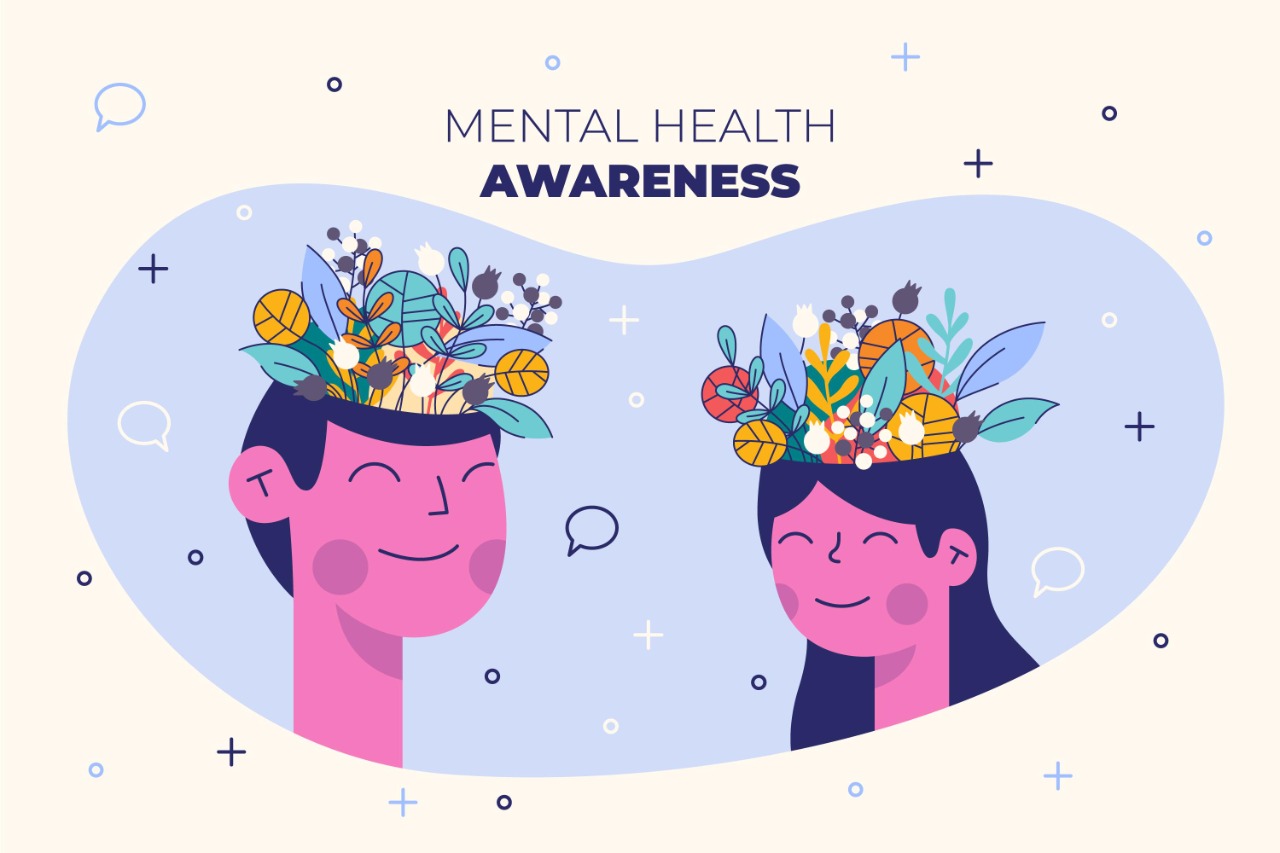Author: Nieke L. Garnia
In addition to threatening an individual’s physical health, the COVID-19 pandemic, which has been ongoing for over a year, can also have mental health impacts. More than just fear, the psychological effects of the pandemic can have serious impacts.
It is known that mental health encompasses social, psychological, and emotional welfare. If one of these is disrupted, it affects the way you think, feel, and act, which is exacerbated in situations such as the current pandemic. Therefore, it is essential to acknowledge mental health at all stages of life, throughout one’s childhood, adolescence, and adulthood.
In addition, many factors can contribute to mental health problems, including:
- Biological factors, for example genes
- Life experiences, for example trauma or abuse
- A family history of mental health problems
Due to the widespread and massive implications of the COVID-19 pandemic, it is natural for humans to experience a wide range of thoughts, feelings, and reactions, including feeling stressed or overwhelmed to the point of causing anxiety, worry, or fear.
The Impact of the Pandemic on Mental Health
The pandemic can also cause individuals to lose interest in daily activities, which can result in physical implications, including an increased heart rate, stomach pain, and fatigue, among other symptoms.
Many factors can impact a person’s mental health, including frustration, irritability, feeling helpless, and being concerned about entering public places. All of these feelings are understandable as they relate to the challenges people currently face.
When a person has mental health issues, they experience anticipatory anxiety, a thought process that usually involves a fear that some undesirable outcome will occur, while underestimating their ability to cope or succeed if the situation does occur.
For example, a person may be worried about accessing competent and reliable healthcare services, about the health and wellbeing of family members due to COVID-19, or about not being able to achieve role expectations sustainably.
It is undeniable that the pandemic, which has not yet abated, coupled with the large number of patients who have died, has resulted in many of us experiencing emotional and mental exhaustion due to the COVID-19 pandemic, or COVID-19 fatigue.
COVID-19 Fatigue
Pandemic fatigue or COVID-19 fatigue is mental fatigue experienced by an individual due to the corona virus pandemic. Pandemic fatigue occurs after an individual reaches their capacity to cope resulting in various symptoms.
These symptoms, for example, can affect an individual’s mental, emotional, and physical condition, due to continued exposure to pandemic stressors, including social distancing, isolation from family and friends, fear of contracting COVID-19, an excess of virtual meetings, financial pressure, and so on.
These conditions can have negative impacts on mental and emotional health. Health conditions, including headaches, inability to focus on the task at hand, digestive problems, insomnia, and a weakened immune system, can ultimately affect an individual’s ability to perform everyday tasks.
There are ways to overcome COVID-19 fatigue, including self-care, for example eating healthy food, not consuming junk food, regular exercise, and maintaining quality sleep, which can all help to achieve better physical condition and stamina.
In addition to maintaining our physical wellbeing, our spiritual wellbeing must also be considered, for example maintaining a positive and creative mindset. In addition, it is important to keep in touch with friends and loved ones, and finally, don’t forget to discuss your mental health and wellbeing with a professional, if you feel it’s necessary.
Managing Your Mental Health
In addition, eight things that can be done to help preserve one’s mental health:
1. Know when to stop
Constant exposure to distressing stories on the news and social media can increase feelings of stress, fear, anxiety, and worry. Although it is important to stay informed, it is better to schedule regular times to take a break from exposure to the news and social media.
2. Pay attention to your breathing
When feeling overwhelmed, take several deep breaths to help maintain your composure.
3. Find healthy ways to relax
Eating, drinking, or consuming social media in excess can cause you to feel more stressed or anxious. Be aware of unhelpful behaviors and replace them with healthier means of coping. For example, take regular breaks, listen to music, take a walk, drink coffee, watch TV, or do things you enjoy.
4. Eat well and get enough sleep
Make sure to eat well and get enough sleep. Set aside time each day for walks or exercise. Taking care of your body can help improve your overall physical and mental health and protect your mental health.
5. Stay connected with those closest to you
Maintaining relationships with friends and family is good for our physical and mental health. Even if you are social distancing, try to stay connected with those closest to you via phone calls, chat, video calls, or SMS.
6. Manage uncertainty by focusing on what is happening now
It’s easy to fall into the mindset of worrying about the future and what “might” happen. Often anxious thoughts lead us to focus on the worst-case scenario, which probably will not happen. As much as possible, start each day by focusing on the things you can control. Mindfulness and meditation can be great tools to achieve and maintain focus.
7. Be kind and loving to yourself and others
Most people aim to be kind and happy. There are many ways to achieve happiness, including bringing joy to yourself and others. Look for activities that increase your contentment within yourself. For example, playing with a pet or practicing a hobby, such as cycling, caring for plants, and so on.
In addition, if a family member or friend seems like they are not okay, don’t hesitate to offer to help them. However, if you feel that it is too difficult to find a solution to their situation, advise the person to seek professional help.
8. Seek professional help if you feel like you are not coping
It is important to remember that it is completely natural for an individual to seek professional help if they feel that their mental health is compromised. Do not assume that everything is okay. Make a consultation and ask for advice from someone who is an expert in their field.
As an individual with several activities, it is natural for us to experience a phase of stress or mental exhaustion of our daily routines. However, it would be nice if we also pay attention to our mental health. By having healthy mental health, our activities will not be disturbed and health is also maintained, both physically and psychologically.


